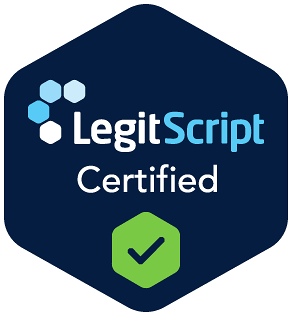What’s the best way to find a Hospital Detox Program? There are a few things to consider when evaluating the various options. The first consideration is the availability of a 24/7 staff, as well as the ability to provide medical care that is of the highest standard. The best hospital detox programs promote patient comfort and safety throughout the detoxification process. Moreover, they conduct intake six days a week between 8:00am and 11:00pm, ensuring that patients receive the highest quality of medical care.
Medically supervised detoxification
There are several advantages to medically supervised detoxification in hospitals. While it may sound extreme, it is important to understand that it is often more effective than undergoing detoxification on your own. The level of acute medical and psychiatric care received in an inpatient detoxification program will vary. Figure 2-1 shows an overview of issues to consider when deciding between inpatient and outpatient detoxification. For example, an inpatient detoxification program may be able to offer more acute care, whereas an outpatient program will be much less acutely supportive.
One major advantage of medically supervised detoxification in hospitals is that the process is organized. Patients are usually kept onsite for several hours per day by licensed and credentialed nurses. Additionally, the hospital’s clinical relationship with local hospitals is important, as patients may require more specialized care. In addition, the hospital should be closely linked to the medical team, so that triage to higher levels of care is a breeze.
While medically supervised detoxification in hospitals is more effective than home detoxification, some patients might prefer it. These individuals often need medical supervision to minimize the withdrawal symptoms. If these symptoms are severe, medically supervised detoxification can help minimize the risks of rebound symptoms. There are numerous medical reasons for undergoing medically supervised detoxification. It is important to seek help early and have all the necessary resources.
Withdrawal symptoms are typically the worst during the first week of treatment and can last weeks or even months. Medication can help alleviate physical withdrawal symptoms, but patients need support for weeks or months after the detox is complete. For these reasons, a medical detox in hospitals is not for everyone. Many patients do not fully recover and relapse after they complete the program. Furthermore, it is crucial to note that medical detox in hospitals isn’t a cure for addiction. It is an important step toward sobriety recovery.
While there are programs available in California, something to be mindful about is the value of the detox program. For example, Providence Mission Hospital Laguna Beach is closing its Chemical Dependency and detox program. Going to seek a program should be a process that can be reachable and will only benefit your journey. Socal Detox located in Orange County that is open and able to help you with their top detox program.
The cost of a medically supervised detoxification program
The cost of a medically supervised hospital detox is generally higher than the cost of an outpatient treatment program. The duration of the program and its attendant costs to determine the total cost, and outpatient treatment may cost anywhere from $300 to $800 a day. Inpatient treatment is more expensive than outpatient detox, but is less invasive. An outpatient detox program can take anywhere from five to seven days, or longer if necessary.
In New York, for example, Medicaid spends more than any other state on drug treatment, paying hospitals for more than 30,000 patients each year. The most expensive patients, estimated at $50 million per year, account for more than half of that total. And these patients check in and out of the detox ward more than 12 times each year – a number that would be considered excessive for most states.
Many people are concerned about the costs of a medically supervised hospital detox. The truth is that not everyone needs the same level of care, and some people can safely detoxify at home. But others may require 24-hour hospital supervision. To ensure your safety, never attempt to diagnose yourself without a professional. During your evaluation, a medical professional will identify your needs and recommend the right level of care.
Medically supervised hospital detoxification services are much more expensive than outpatient care. Inpatient treatment involves the cost of meals, housing, and medication. Inpatient treatment can take up to nine days to complete, but is typically more rigorous. Depending on the severity of the addiction, an outpatient treatment may be less expensive than inpatient treatment. But the benefits of inpatient treatment outweigh the costs.
The cost of a medically supervised hospital detoxifying program is higher than that of an outpatient treatment, but it is well worth the costs if the program is effective and affordable. The quality of the care you receive is crucial for your health and that of the people around you. If your health is at stake, it is essential to receive the highest level of care possible. A medically supervised hospital detoxification program is the only way to ensure safety.
Requirements for admission to a medically supervised detoxification program
There are certain requirements for admission to a medically supervised treatment program. Inpatient detoxification is the most common form. Patients who are admitted to a medically supervised treatment program are monitored on a daily basis. Physicians are on call 24 hours a day and should evaluate a patient on the first day of admission. A nurse or other qualified nursing specialist should conduct the initial assessment and oversee the patient’s progress and medication administration. The program should be staffed by licensed staff who adhere to the physician’s orders.
Some substance abuse disorders co-occur with a variety of medical and mental health conditions. Some of these problems are not immediately obvious and can be difficult to recognize. Some substance abusers have underlying mental health conditions and are unaware of them. For instance, Heroin abuse does not usually cause abdominal pain associated with Hepatitis. While inpatient rehab, these symptoms may not surface until the patient has undergone medically supervised detoxification.
Several medically supervised residential detoxification programs vary in their level of care. Higher-level medical care is provided in more specialized facilities, while lower-level residential detoxification centers provide care without medical supervision. Lower-level residential detoxification facilities should have clear procedures for referral to a medically supervised detoxification program. A medical assessment is essential when the patient’s physical and mental health are at risk.
Inpatient medical detox involves the use of medications to alleviate symptoms associated with withdrawal. The medication administered to the patient varies. While opioids, alcohol, and prescription drugs are all considered medically supervised detox, alcohol withdrawal poses an even greater threat. Withdrawal symptoms can be severe and sometimes life-threatening. During the detoxification process, the patient may experience vomiting, nausea, or even hallucinations.
Substance abuse affects the brain, heart, and circulatory system. Alcohol withdrawal can result in medical emergencies, including seizures, heart problems, or respiratory failure. These symptoms can be deadly if not treated properly. If not treated properly, the effects of alcohol withdrawal can damage the brain. Without the help of a medically supervised detoxification program, a person may suffer from a number of other health issues, including depression, delirium, and even death.
In conclusion, SoCal Detox is a great place to start your recovery process. They offer help in all sorts of detox from drugs and alcohol. With a substance abuse it is important to seek help and find a program that best can help you to find recovery. Call 888-590-0777 today to find out how to get started!





